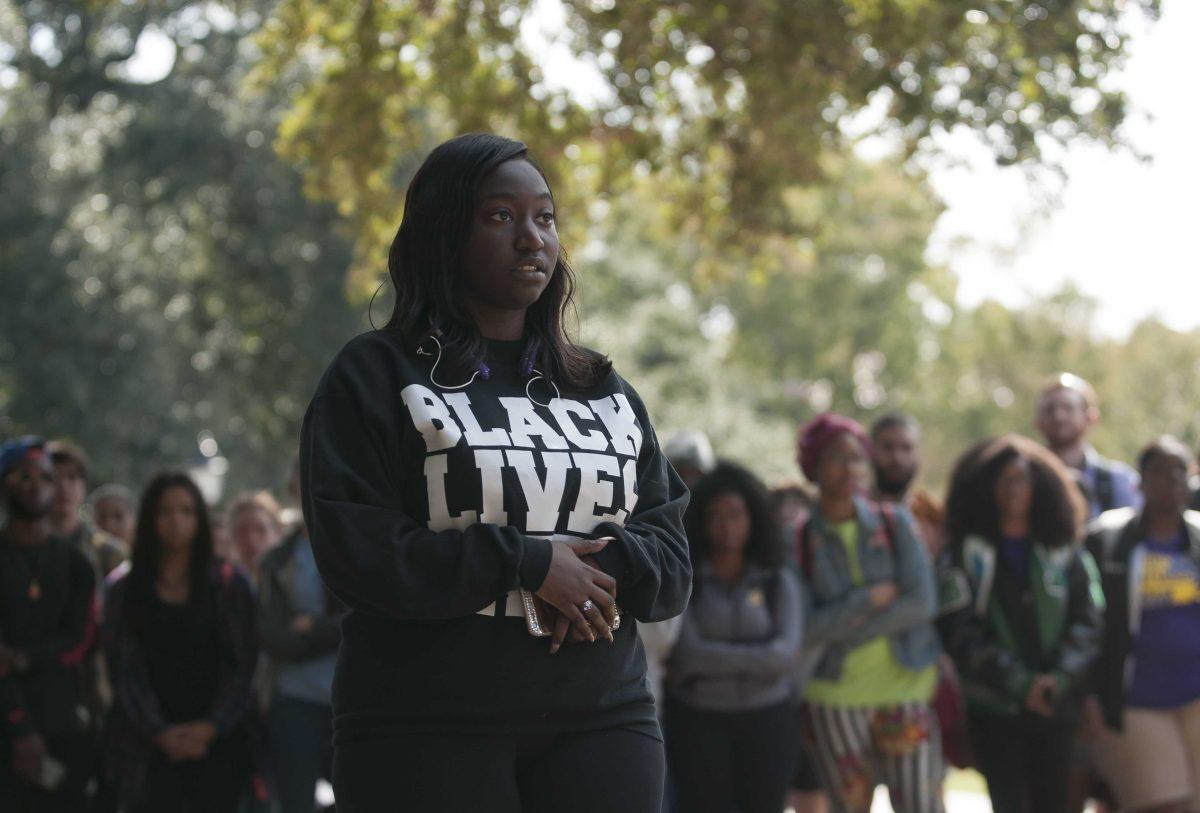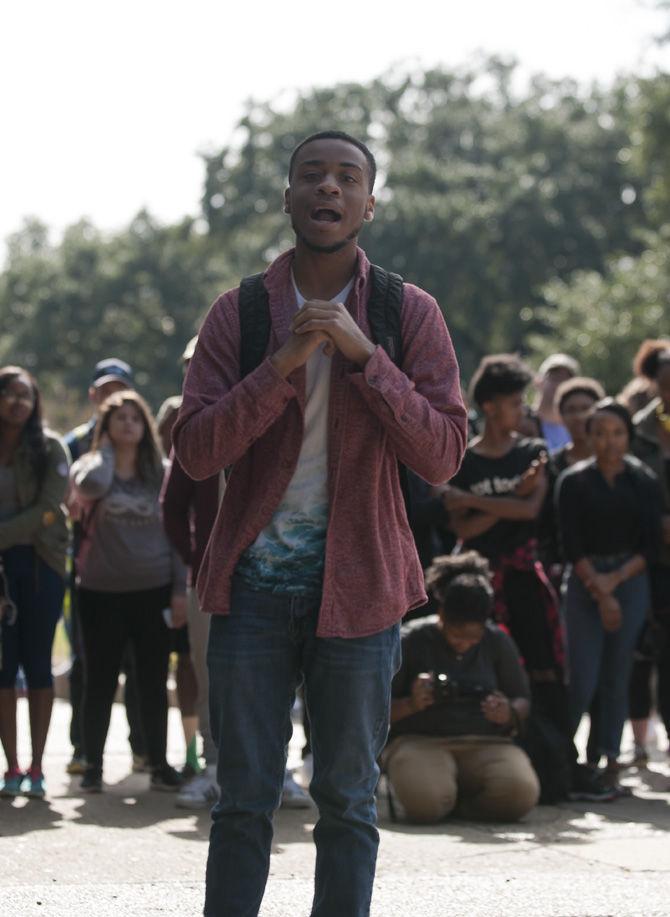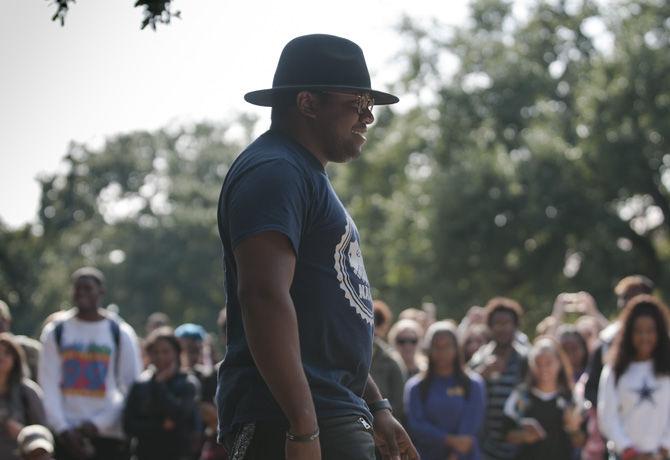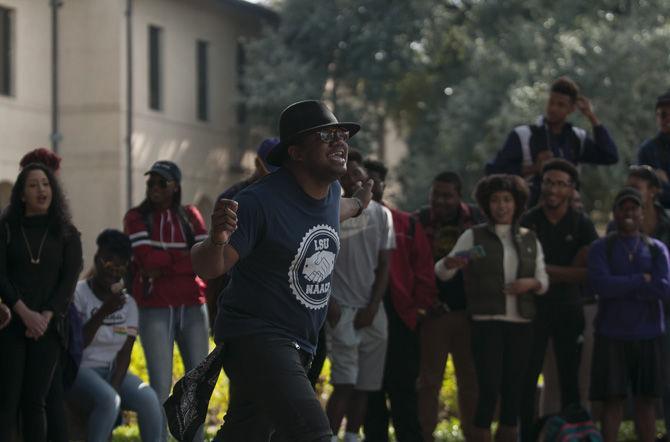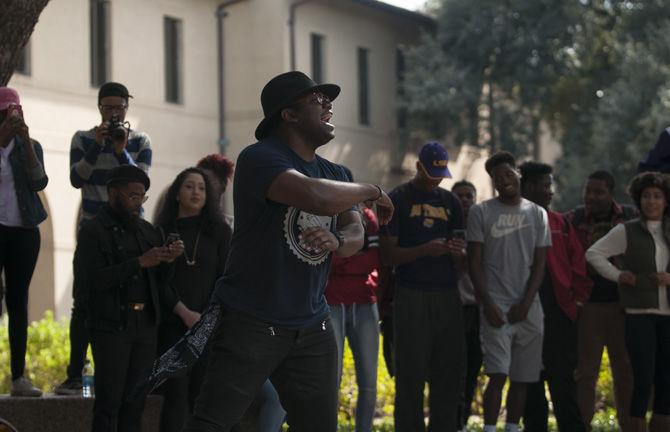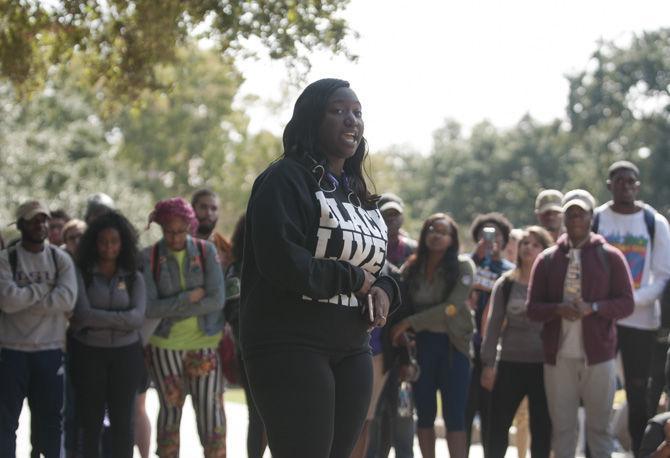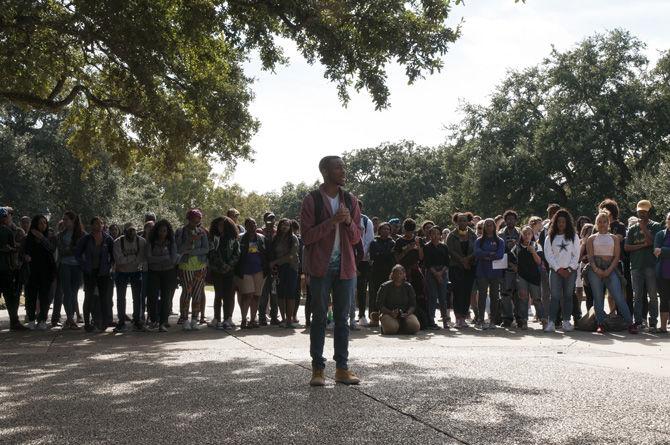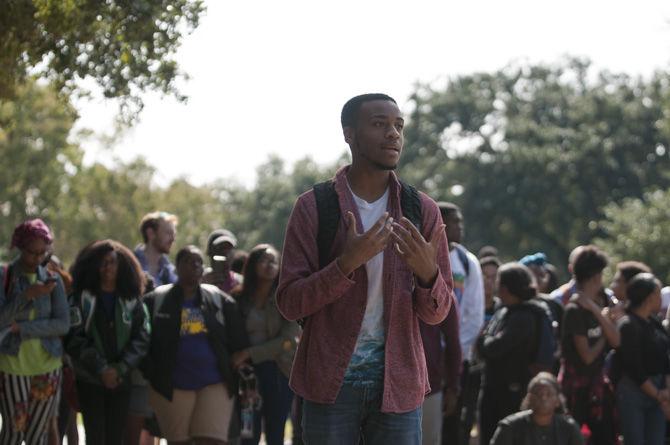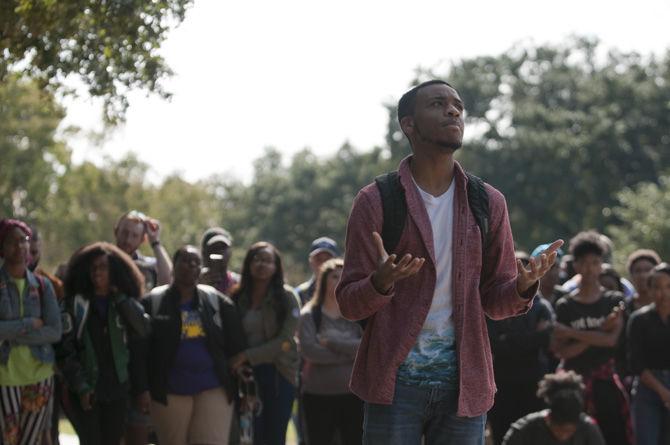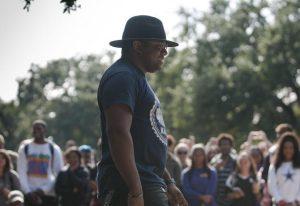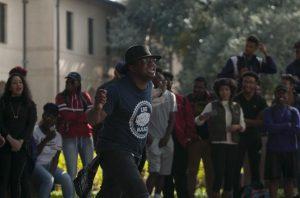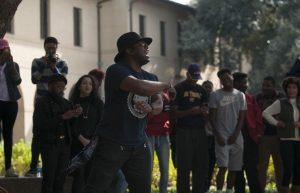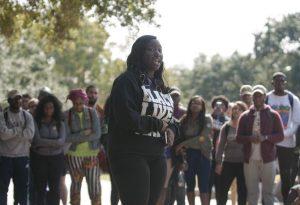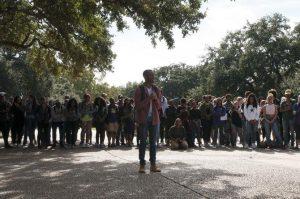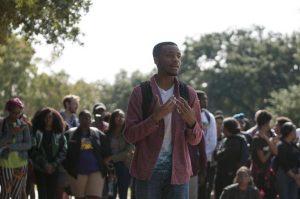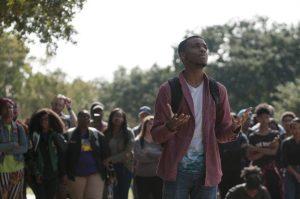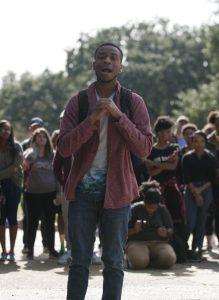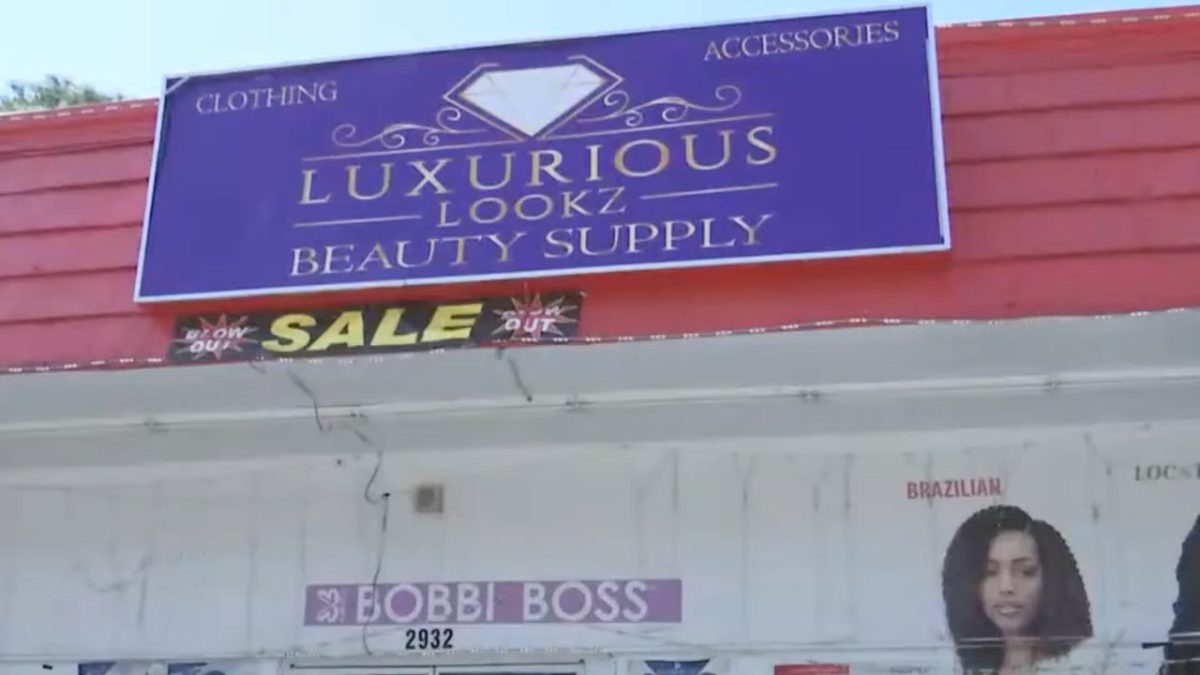A diverse crowd of students formed a circle in the University’s Quad Thursday at noon to protest Donald Trump’s election to the nation’s highest office.
The protest was organized by the Black Student Union and the NAACP at LSU, BSU president Destinee Merida said. The event featured several student speakers, a moment of silence and a chant of “We’re gonna be alright,” led by LSU Student Government director of policy Monturios Howard.
“It was me and Howard that came to together to think about it,” Merida said. “It was literally us talking at the [African American Cultural Center], and I was like, ‘We just have to do it.’”
Howard, who is also the president of the NAACP at LSU, said the event was a demonstration to “show people that your life matters.”
He said the protest wasn’t to say they did not accept Trump as president, but to demonstrate the value of everyone’s voice.
“It’s not to say that we don’t accept Trump as our president because he’s definitely president. He was elected in,” Howard said. “But at the same time, you want to show the country that this is a place where everybody should be valued for who they are and not what you think they are, the differences.”
Howard said the mood on campus following the election was “tense.” He said it felt like people were “afraid to even look at you.”
He also disregarded the idea that President Barack Obama divided the nation, calling those who supported Trump’s “divisive rhetoric” hypocrites.
“I understand if you vote party lines and you’re a conservative, but there’s a difference between voting party lines and voting social oppressive people into office,” Howard said.
LSU Vice Provost for Diversity Dereck Rovaris said he’s heard from several people from underrepresented communities since the election and that many are worried their work toward progress has been set back.
Rovaris said he thinks the rally will get people talking about these issues.
“There are at least 200 — maybe 250 out here — and it was a mixed group of black, brown, white, Asian, gay, straight, Muslim, Christian,” Rovaris said. “They’re going to get emboldened to do more work and work harder. That’s my hope. My fear is that there’s some other folks who’ve been emboldened, people who would say racist and homophobic and nasty things about others.”
Kinesiology freshman Taylor Thigpen attended the event and described it as a peaceful way to speak out against the results of the election. She said it was a “realization that the nation is actually going in the wrong direction.”
Thigpen said she has kept up with the anti-Trump protests going on around the country, particularly those in Chicago and New York City.
“We’re realizing that the government isn’t for us,” Thigpen said. “That we don’t matter. It’s never what we want. It’s what they want. People are becoming more aware that their voice doesn’t matter.”
Sydney Epps, a higher education doctoral student, read a poem she wrote around the time Obama was elected in 2008. She emphasized the role higher education plays in solving social issues.
She said the higher education system does not have enough minorities, members of the LGBTQ community and women in administrative and teaching roles.
“We don’t have enough people of color within higher education, in the administration, in our classrooms,” Epps said. “And we don’t have enough LGBT people. We don’t have enough women to make waves. We need to have more grassroots constructions like this so that we can meet each other and we can figure out who’s on our side and who isn’t.”
Students rally in Quad to protest after Donald Trump’s election
November 10, 2016
Destinee Merida speaks during a protest on November 10,2016 in the LSU Quad.
More to Discover



